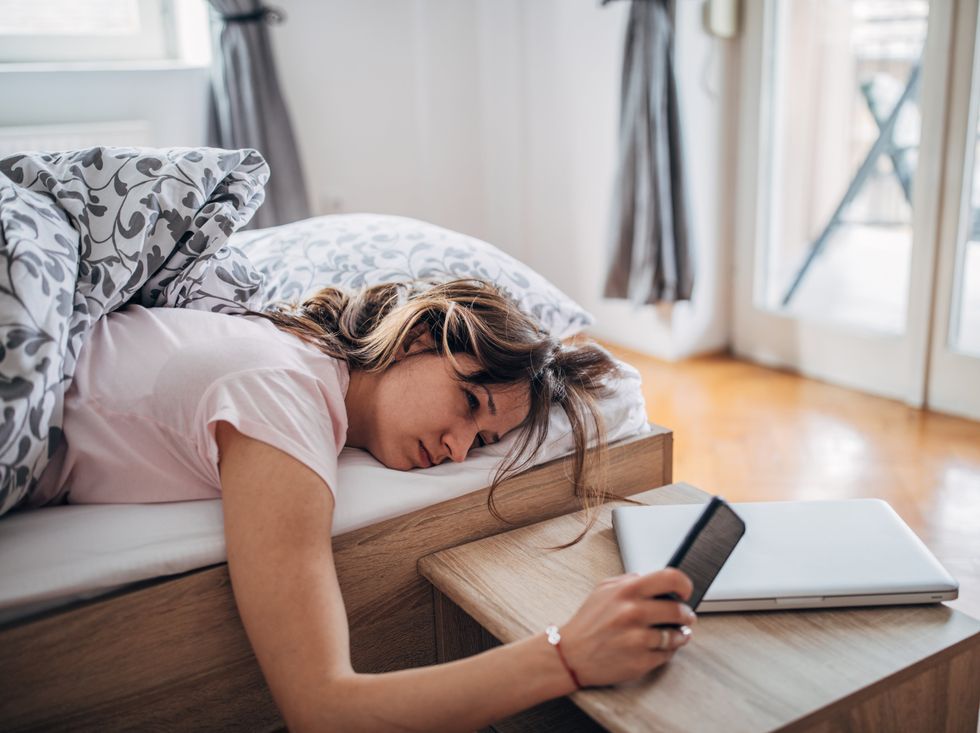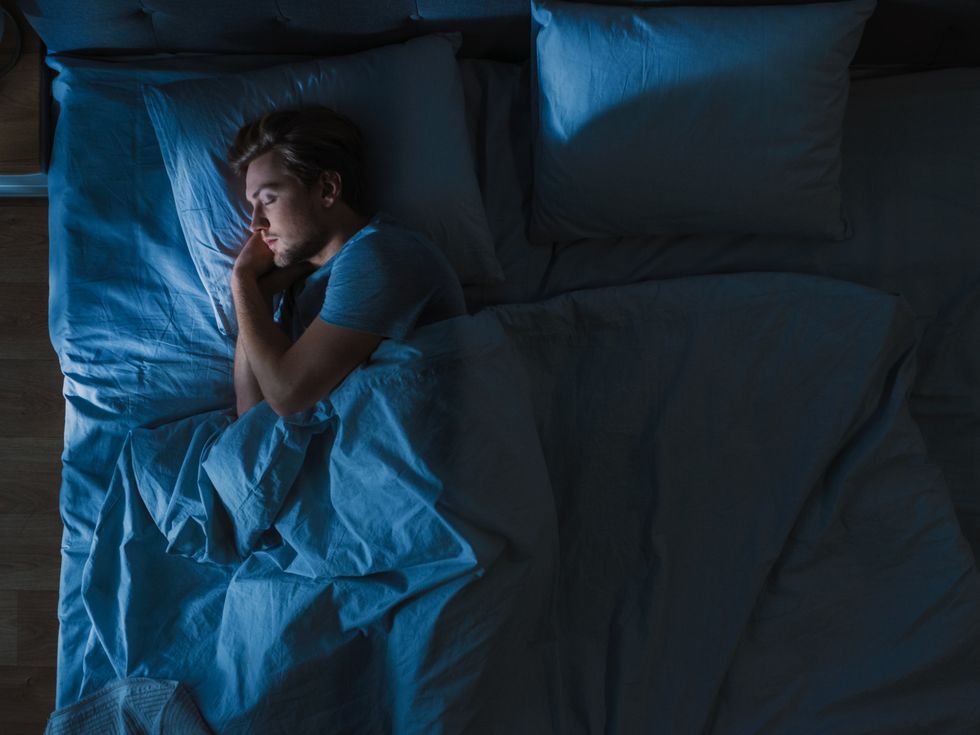If you’ve ever found yourself mourning the weekend before it’s over, dreading the upcoming work week once Sunday rolls around, you know what we mean by a case of the “Sunday scaries.” And most people do, especially as of late: A recent survey found that the phenomenon is at an all time high, with a whopping 66 per cent of people in the U.S. feeling stressed and anxious on Sunday nights in anticipation of work the next morning. But what causes this feeling of dread in the first place?
“The Sunday Scaries are essentially a form of anticipatory anxiety, with the dread of your weekend ending and the workweek beginning,” psychologist Dr. Haley Perlus, Ph.D., tells indy100. “This anxiety can cause you to feel restless, irritable, or even have an onset of stomach issues. However, just because it may feel like an unavoidable decline in mood, there are ways to avoid the so-called ‘anticipatory panic.”
Read on for experts’ suggestions on how to combat your end-of-weekend worry.
Get your chores out of the way so you can relax

“For a more restful Sunday, get your worst chores out of the way first, don’t leave them until the end of the weekend,” Dr. Holly Schiff, Psy.D., a licensed clinical psychologist, advises. “You want your Sunday to be left for fun and restful relaxation. Make sure to pace yourself throughout the week when it comes to chores and errands. Even doing just one task a night can help you free up some time on Sunday.
“You can even dedicate Sunday exclusively to relaxing activities only,” she says. “Plan a special treat for yourself on Sunday evening, whether that is an enjoyable activity, a relaxing bubble bath or take out from your favorite restaurant.”
Sign up to our free Indy100 weekly newsletter
Make Monday something to look forward to

“While everyone dreads Mondays, try to make it a special occasion,” Schiff continues. “Schedule something you look forward to for Monday in order to take the edge off some of the dread you feel as the weekend comes to a close.”
“Treat yourself Monday morning too! Try a new coffee flavor, create a morning playlist, do something for yourself; this will give you a sense of excitement and help you cognitively relabel what Monday looks like for you.”
Leave work at work

Close that laptop! “The weekend gives a sense of freedom from work because there is no expectation to do anything work related,” Natasha Bryant, LCSW, psychotherapist and owner of Speak Life Transformation, says.
“During the week many people are responding to emails late at night and/or working two to three hours past the time they planned to leave the office. Setting work boundaries are important for self care and one of these boundaries is leaving work at work. Leave your work computer at work, turn off email notifications once you leave the office.”
Ask for help if you need it

It’s easier said than done, we know, but getting adequate help at the office can help improve your weekends, too. “Feeling overwhelmed about the workload at work can cause Sunday Scaries. “Many people are nervous about asking for help because they do not want to seem incompetent,” Bryant explains. “Giving yourself permission to get the help you need will relieve you from falling behind at work.
“Get assistance, delegate, and gain additional resources. When Sunday comes around you won’t have anxious thoughts about ‘all the work’ waiting for you when you return to work.”
Do something fun

Or at least try. “One reason Sunday Scaries exist is because many people cancel Sunday as the weekend because work is the next day,” Bryant adds. “Around 3 or 4pm people begin to checkout and are already thinking about having to return to work on Monday. Do not cancel Sunday. All of Sunday is still part of the weekend. Allow yourself to be in the present and enjoy the weekend in its entirety.”
“Make sure to do something on Sunday that you enjoy,” Michaeli conurs. “This can be getting together with friends, spending time with family, or engaging in a favorite hobby such as reading. This will help you feel like you have taken some time off to recharge and be ready for Monday.”
Start a Sunday night routine

...And no, nonstop worrying doesn’t count. “Set a Sunday evening routine, it can help you prepare for the upcoming week as well as wind down from the weekend,” Schiff says. “Plan your Monday morning, this relieves some of the anxiety and overwhelmed feelings you may experience Monday morning.”
“Strategize about what your Monday morning will look like, pick out your outfit the night before. This will make you feel more comfortable about your upcoming week and may improve your sleep quality Sunday night.”
Ground yourself in reality

How many times have you felt petrified on a Sunday night, only for things to be fine at work the next day? Exactly.
“Usually, the anticipation of what’s to come doesn’t compare to reality,” Dr. Perlus reminds us. “You can ease your stress by going through all the possible outcomes. What are the chances of something negative occurring, and how can you better prepare yourself for it?”
“Reprogramming your psychological script can go a long way in easing your anxieties.” Ak yourself: How many times have I felt this way, when things ended up being okay? (A lot, I bet.)
Get enough sleep

This one seems obvious, but you might actually be “doing” sleep wrong. According to Dan Ford, a sleep psychologist, we shouldn’t be sleeping in on Sunday mornings — or going to bed too early on Sunday nights.
“Most people are going to need to have around about 16 hours of activity in a day before they are ready, or sleepy enough, to fall asleep,” he explains “If you sleep in on Sunday morning and go to bed at the same time as you normally would in the week then you may now be getting less than 16 hours of activity. That would lead to lying awake or having a harder time getting to sleep.”

On the other hand, “if you have slept in and gotten up later, and then you go to bed early, that almost guarantees that you will not be sleepy enough to fall asleep quickly leading to lying awake [and] our minds start to wander.”
Therefore, “poor sleep is actually due to not being sufficiently sleepy to fall asleep quickly, not that the mind is anxious or the mind wandering keeps us awake. If you repeat the pattern of lying awake often enough, you begin to dread Sunday evenings which can lead to anxiety about Sunday nights which will, of course, lead to arousal which will keep you awake.”
Here’s to reclaiming Sundays!














